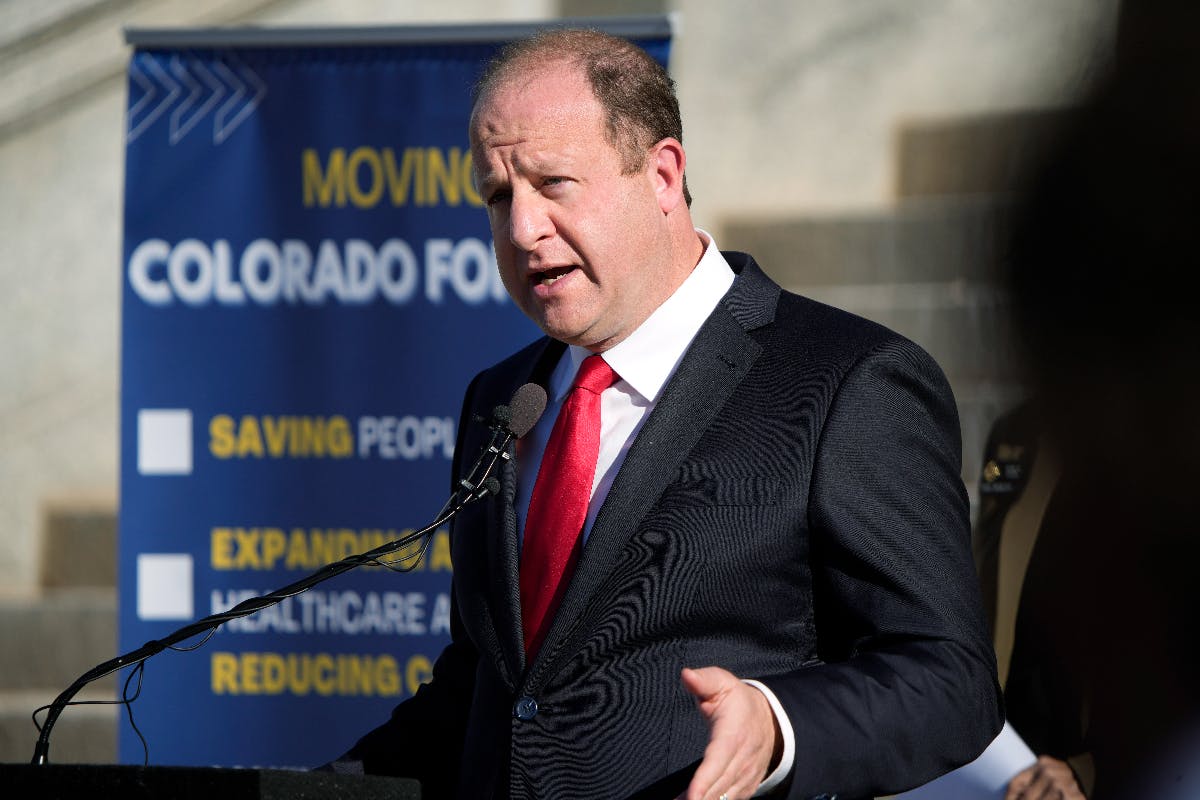Parchment May Slow Rush to Digital Currency Future
Colorado, which legislated in 2019 a digital token app that has so far remained dormant, styles itself as being in the vanguard of the rush to digital currency.

A mile-high constitutional conundrum could be set off by the Colorado governor’s groundbreaking decision to embrace cryptocurrency as valid payment to settle tax bills in the Centennial State as soon as this summer.
The governor, Jared Polis, reiterated the aspiration in a keynote address on Friday at ETHDenver, which bills itself as “the world’s largest annual community-driven Web3 innovation festival.” It aims to build “the decentralized future.” Some waited in line for three hours to enter the festival.
Colorado, which legislated in 2019 a digital token app that has so far remained dormant, styles itself as being in the vanguard of the rush to digital currency. Its legislature has considered how blockchain technology can be incorporated into improving the agricultural supply chain.
A lawyer, Yev Munchik, who spoke at ETHDenver and who is helping to draft Colorado’s cryptocurrency policy, tells the Sun that Wyoming is currently leading the way in embracing crypto and that politicians in Denver are eager to catch up to their sparsely populated northern neighbor, which has become known as “the promised land for bitcoin investors.”
A proposal in Wyoming, which is backed by the Merchant Advisory Group, a major trade organization that includes Amazon, Walmart, and Home Depot among its members, seeks to allow residents to pay land and use tax via cryptocurrency.
Politico reports that the leader of a group backing the bill calls it “the beginning of the end” for central banking and the American dollar.
The centerpiece of Colorado’s effort, as the Sun has reported, is a scheme floated by Governor Polis that would allow Coloradans to pay their state taxes in cryptocurrency. The state would then convert those payments back into American fiat scrip.
While the plan to link Colorado’s purse to cryptocurrency is a bold one, Ms. Munchik, the lawyer helping to draft crypto policy, tells the Sun that “the infrastructure just isn’t there” for this effort to find fruition in the immediate future.
There might be another hurdle, as well, and it comes not from the digital future but from a parchment of the past. Article I, Section 10 of the Constitution enumerates restrictions on the states, limiting their ability to sign treaties, impair contracts, issue bills of attainder, or grant titles of nobility.
Section 10 also prohibits states to “coin Money” or “emit Bills of Credit” or make “any Thing” but gold and silver coin “a Tender in Payment of Debts.” All of these are reserved for the federal government.
Memories of the decentralized chaos of the Articles of Confederation were still fresh, as was the humiliation of the collapse of what were called “Continental dollars,” with which Congress financed the revolution and which eventually triggered the jibe “not worth a continental.”
This raises the question of whether Colorado’s proposal to allow residents to pay their taxes in crypto runs afoul of the prohibition making anything other than gold or silver coin “a tender in payment of debts.”
Mr. Polis likens the plan to “accepting a credit card, but with a much lower transaction cost than a credit card.” That, though, would be hard to square with the plain language of the constitutional prohibition in Section 10.
An even more radical and constitutionally more risky proposal is under consideration in Arizona. That measure would seek to amend state law to deem bitcoin as legal tender to pay “debts, public charges, taxes and dues.”
In Colorado, Mr. Polis reckons, incorporating a “transactional layer” between the government and the currency shields the state from “the speculative risk of holding crypto.” Those risks are not only on the mind of Coloradans: They are finding their way onto the agendas of fiscal policymakers in Washington, D.C.
A speech delivered Friday by the Federal Reserve’s vice chairwoman, Lael Brainard, mentions “the potential risks and benefits of a U.S. CBDC,” an acronym for central bank digital currency, or a digital version of the dollar.
President Biden is widely expected to issue an executive order next week directing a wide range of government agencies to begin strategizing on the future of money and regulation of digital assets.
Even if Colorado manages to skirt constitutional prohibitions, it is likely that Article I, Section 10 has not spoken its last word.

